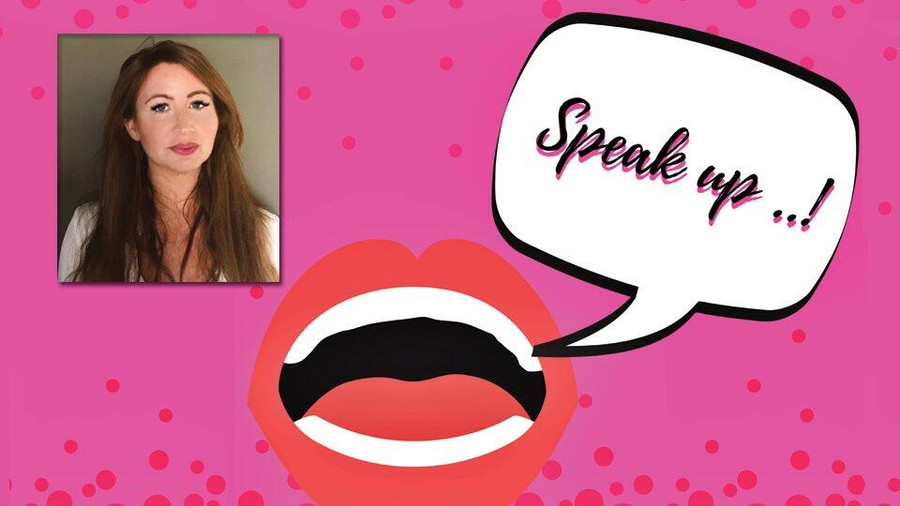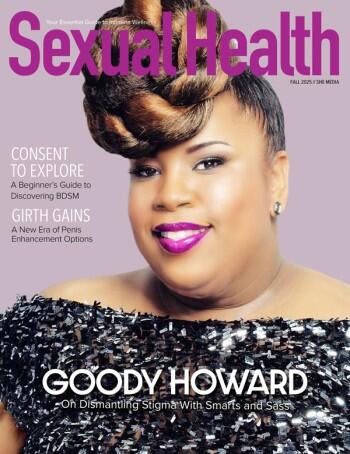Have you ever played the word game, Taboo? The idea is that you have to get your teammates to guess a word that’s written on your card — “hotel,” for example — but without using the word itself, or any related words listed on the card (like “room,” “holiday,” “keycard,” etc.) It’s tricky. It’s an interesting exercise in how good you are at communication. If you want to win the game, it takes a lot of skill, a bit of experimentation and occasionally a bit of mind-reading. This is how life is for many people who struggle to talk about sex.
This month I was reading an article about a recent study published in the Archives of Sexual Behavior, which looked at rates of women faking orgasm alongside their attitudes towards sexual communication. The conclusion — which will probably not come as a surprise to many who work in the sex industry — was that greater self-reported sexual satisfaction was associated with more comfortable sexual communication. The easier it is for you to talk about sex, the more satisfying your sex life will be.
If you can be specific about what gives you pleasure, and comfortable communicating that to a partner, then you’re likely to enjoy a much more satisfying sex life.
It may not be surprising, but it’s nice to have confirmation of something I’ve long since suspected: if you can be specific about what gives you pleasure, and comfortable communicating that to a partner, then you’re likely to enjoy a much more satisfying sex life. The principle extends to solo sex too — if you’re shopping around for sex toys, it’s invaluable to be able to specify whether you prefer clitoral stimulation to G-spot stimulation, rumbly and powerful toys or gentler sensations, patterns or constant vibrations, and much more besides. It’s the difference between walking into Carphone Warehouse with a list of your specific requirements (“I need a decent camera because I like to take pictures, at least 5GB of data each month, and a carrier with coverage in Aberdeen”) versus simply saying “I know nothing about this” and letting the salesperson sell you something overpriced and unfit for your purpose.
When it comes to getting what you want, there is no substitute for good communication. You probably know this if you’re working in sex toy customer service or marketing: if I had a dollar for every time someone asked “will my wife like X?” and had to be gently reminded that the only way to know that is to talk to their wife about X, I’d probably own a yacht by now. But how do we get people to communicate more about this? How can we help those who have unsatisfying sex because they simply can’t find the words to talk about it?
Recent discussions around the orgasm gap have been doing well, I think, at highlighting the importance of communication. And not just generic communication like “this is where my clit is, please stimulate it!” but more in-depth discussions around individual bodies, and the very personal and unique ways different people respond to stimulation.
There was a fantastic twitter thread this month by sex and relationships journalist Franki Cookney, in which she took issue with a meme that was going around on Instagram at the time. The meme read, “It takes 237 muscles to fake an orgasm, but only 15 to say ‘it’s called a clitoris and it’s right here.’” Franki’s point — which was an excellent one — is that there is far more to communication than just saying “here is my clitoris.” Thinking back to that study, the women who reported greater sexual satisfaction were likely not just pointing towards their clitorises and saying “there!”, because there’s so much more to it than that: the type of stimulation someone needs (which may or may not be clitoral), whether they use sex toys, whether they feel comfortable within the relationship (and within that exact moment) to be precise about exactly what they need, and whether they can guarantee that their partner will hear and understand them.
In the study, reasons women gave for not communicating their needs included not wanting to hurt a partner’s feelings, not feeling comfortable going into detail, and embarrassment. So while it may be easy for those of us who work in the sex toy industry to say, “This is my clitoris, here’s how you need to stimulate it,” there are many women for whom this simply isn’t the case. So how can those of us who are comfortable with communication pave the way for those who find it more difficult? The first thing is one I think we’re all doing already: talking and writing about sex in easy-to-access ways. Most sex toy companies, adult performers and other industry types are already aware of the difference it can make to simply talk openly on our public platforms about sex. Whether Instagram, Twitter, blogs, or any other channel that works to reach people who may not have heard of you before.
The other thing, though, is an area I think we can all improve on: getting rid of language that feeds into embarrassment. I’m very conscious, when reading sex-related posts, of words like “naughty” or “indecent” or “rude.” In some contexts these can heighten people’s arousal by playing on the “taboo” nature of what we do. But when overused, these words cement a feeling of shame: teaching people that their sex lives are things that should be whispered about behind closed doors. Likewise euphemisms like “V-zone” or “froo froo” (actual terms used in marketing products to people with vaginas!) can sometimes cause more harm than good: making it difficult for people (whether through ignorance or embarrassment) to specifically name parts of their body when they’re trying to communicate their needs.
As I say, I think in the sex industry we’re pretty good at this already. We aren’t afraid to have the conversations that more mainstream industries might shy away from. But it’s something I think we need to always be aware of: where we may be using euphemisms or ‘shaming’ language ironically, because we know there’s no shame in sex, there are many people who still can’t bring themselves to name body parts or articulate their needs. Studies like the one mentioned above are a good reminder that not everyone’s up to speed yet, and we need to tailor our work accordingly. Use accurate terms, with confidence, and keep repeating them until they are no longer “taboo” things to whisper in embarrassment, but everyday terms that everyone feels comfortable using.
Julia Margo is the co-founder of Hot Octopuss.








